Not everybody likes to read long legal contracts. For people who aren't lawyers, these aren't the easiest to read. The same can be said about resumes. Not everyone has the time to read 100 resumes a day. This is where the power of technology comes in. Klarity is a tool that has an AI that reads and automates all your documents. It can check read your contracts or choose the top ten most promising resumes. Join Yuri Kruman as he talks to the founder of Klarity, Andrew Antos about what Klarity offers in legal tech. Learn how Klarity works. And discover how he manages his people and his hiring process.
Bullets:
How did Andrew get into law and the tech industry?
What is Klarity and what does it do?
Klarity is a tool that can automate and read your legal contracts for you. It helps you index all of those and find the ones that you actually want.
What Andrew looks for in his staff and how he manages his people.
He is looking for people with drive, empathetic towards customers, and good collaborators.
What are the things that Andrew finds most important in his life and how does he manage to focus on those?
COMMANDER POD - Season 2 Episode 1 - Andrew Antos Of Klarity
Building Software That Reads Documents Instead Of Humans
We finished 25 episodes in the first season. Now, we are jumping into season two. We are going to try to do things a little bit better, tell a little bit more interesting stories and maybe find something a little bit edgy. In this episode, it's going to be in legal tech. It may not be the first and most obvious subject when we think about tech but I'm excited to speak to Andrew Antos of Klarity. Andrew, welcome to the show. Please tell us a bit about yourself.
Thanks so much for having me, Yuri. I'm Andrew. I'm the Cofounder and CEO of a company called Klarity. We are an SF-based Series A startup. What we've built is a system that can read documents and understand them in a very similar fashion to a human. Even though the document formats change and evolve and the actual words to describe a certain concept are different, we built a natural language processing platform that can understand those documents. It works in a very similar fashion to the human brain.
What we do with that is find out that legal contracts run the world. Businesses sign a lot of contracts with other businesses to sell or buy stuff. What we found is that there's only one type of person who enjoys reading those contracts, and those are lawyers. You have a lot of other people who have to read those contracts, typically accountants, finance teams, and all kinds of operational teams that are looking for specific parts and truly hate reading those documents. What we do is we read those documents for them and extract a few pieces of information that they are looking for. That is what we do. We sell this to a lot of large companies. We have customers like RingCentral, Optimizely, Intercom, UiPath, and a lot of large software and non-software companies.
Before we get into your story because as I've talked to you before, there are a lot of very interesting and fascinating pieces to your story during that typical pieces. Before we talk about that, let's help listeners understand the real situation. With lawyers, I get it. I'm a former lawyer. You are a former lawyer, also. I don't know if either one of us practiced that much but at the very least, we know that when you are working in a corporation or at some relatively advanced startup, you are sitting on probably thousands of legal documents and a lot of them have to do with very important billing terms or service level agreements. It gets into very cringe-worthy stuff if that's not your cup of tea.
If you are a founder and you are coming from sales and marketing, you might know your contract terms and clauses here and there but it's like, “Ugh.”. Let's say you go to your friendly local lawyer who might cost you $500 an hour at the very least, “Pretty please. I have no clue what's going on. Can you please help me interpret this?” “Sure,” and you get back a bill for twenty hours and are like, “$10,000 for that. I could have figured it out myself.” That's one from a founder's perspective.
You mentioned an accountant. This is a practical example. Let’s say I’m an accountant. I'm working at a Fortune 500 company and used to doing my stuff. I must manually look into these service-level agreements and understand these structures. Help me understand how does your product help me to cut time and get to the point?
If you think about a contract, it is the terms and conditions for a commercial transaction. I'm selling you something, you are buying something from me, and we have certain terms and conditions. How much of it are you buying? How much does it cost? When are you going to pay me and all kinds of legalese that are surrounding that transaction? What happens is that in a Fortune 500 company, you would have a sales team working with a legal team to get that deal done. They are negotiating, and then they sign the deal. Both the seller and lawyer cleaned their hands and were like, “I'm done. I'm going now.”
What happens after that is that you have people in teams for order processing, billing, and revenue accounting. What they need to do then is you sign a deal, and then you have to go into those documents. You have a number of documents. You have your MSA, Master Services Agreement, and SLA, Service Level Agreement. You have your order form. You have a statement of work. Maybe you will receive a purchase order. What the accountants do is have to read all of these things, understand the commercial aspects of the transaction and extract all these pieces of information.
What they are doing is that they have these massive spreadsheets, Microsoft Excel or Google sheets. They are filling it in, reading the document, and standardizing the information. What Klarity does is every single time you sign a deal, we take all of those documents. We compile them together. We package them and say, “All these documents relate together.” Our system reads them and extracts and standardizes all the information.
You don't even have to look at the majority of those deals at all as an accountant. You only look at the few that have something nonstandard or where there is something missing. We had customers for whom we were able to remove 98% of the volume. We have a customer who used to deal with about 20,000 transactions per year. Now, they are looking at thousands per year. This is very different from looking at 1,800 documents per month. In 20 working days, that is roughly 20 a day or so, at least for each person on that team.
If they have ten people dealing with this, it's a tough work. We are able to cut it down and say, “Here’s 100,” going down from 2,200 per month by saying, “There's something strange going on here. You should exercise your human judgment, which you are uniquely good at, to figure out what's wrong here.” That's what we do.
Let's contextualize the problem. Number one, all those lawyers, accountants, and highly paid professionals are expensive, whether you have them in-house or a little bit cheaper per hour or you have some outside counsel or accountant. It's a massive number of hours. That's one very obvious thing that can come down a lot with some of this. There's also the potential for human error. If the volume is high, you are going to get some mistakes sooner or later. I don't care how good the lawyer is or an accountant. There's always some paralegal or junior trainee who's going to pick up the slack and not always well. That's clear. The time spent is very important in getting things right.
I wanted to mention something that you made me think about. One of the things we've talked about with previous guests if you look at the major guild professions. You have law and medicine. I don't know if I would call finances a guild profession but there's a relatively high level that you have to reach educationally and otherwise to get there. Otherwise, known as a Boy's Club with many amazing women there.
The point is that, over the last few years, there has been a big movement, even before AI, I would say. There's offshoring or finding somebody in India to read the same medical scans. There's this middle layer. In law, for example, generalists do document reviews. We see they are under threat because there are much better tools out there, whether AI-based or something else, which can do all that document review crunching much better and faster and much cheaper.
In medicine, you have offshoring. You have AI also reading scans. Usually more efficient, even human doctors. In finance, you have a lot of algorithmic trading things that are not necessarily based on human judgment. Its objective formulas. I see a number of other tools, whether they are AI-based or what have you taken away from that middle layer? The reason I'm bringing this up from a people perspective, I always try to think, “What is the workplace going to look like in 5, 10 or more years?
We are talking about AI taking all our jobs. This is one very notable example where it's not anything that's low-level. It's very highly skilled work, which is not even going to get offshored. It’s only going to get eliminated. All those generalists and freshly-minted lawyers or what have you, tough luck. You have been replaced, which may be a good thing. The reason I'm bringing this up, I'm going to pivot a little bit in a different direction.
Legal contracts run the world and yet only lawyers enjoy reading those.
I want to help our readers understand. You are a brilliant guy. You are in Silicon Valley. A lot of people will look at your background and say, “Y Combinator and VC-backed,” but I think that misses the most interesting parts of your story. Tell us a bit about your journey. Before all of that YC stuff and before all of this fancy-schmancy Silicon Valley stuff. How did you get to where you are?
I have an interesting story but it's fairly straightforward. I grew up in a town called Brno in the Czech Republic. It’s East-South in the Czech Republic. It’s in Central Eastern Europe. It’s closer to Vienna and Prague. It's a university town. I was born one year before communism fell. I grew up in a freshly-minted democracy. I grew up in that environment and what was interesting is that I grew up in a family of scientists, to a large extent, especially from my mother's side.
Most of my relatives for the last couple of generations were physicists, chemists, and mathematicians. I always had that influence of looking at problems from a little bit of an engineering or scientific angle. At the same time, I get fascinated by politics, policy, and things like that. In high school, I did a lot of model United Nations, the European Parliament, and these things. I was fascinated by both technology and social sciences.
When I had to choose what to do, I decided to go to law school. In Europe, you do law school as an undergrad. I decided to go to law school and did everything related to technology somehow. We were looking at a lot of corporate issues with the internet and user-generated content. I don't know if you still remember but jailbreaking up iPhones and things like that in the first couple of years of its existence.
I was looking into all of these different things. I wrote my thesis on the regulation of genetic information. Suddenly, it's easy and cheap to read somebody's genetic material. That's an extremely sensitive piece of information. What do you want to do with it? I love law school. It was extremely intellectually stimulating. Two things happened.
I get an internship at the government office, which is the State Department in the US. I was working on legislation that would mandate all entities that are spending taxpayers' money to publish all the data that they are generating in a machine-readable format. People are putting everything in PDFs and flatten PDFs. They scan it at an angle, and it’s difficult to get the information.
That's where I developed a passionate hatred for PDFs. It's called portable document format but is designed to make it difficult to deal with the information in the document. It deals with the document as a unit and not what's inside the document. That was the first impactful step. The second impactful step was that I then decided to go to private law practice. I worked for a big DC-based firm called Squire Patton Boggs doing tech M&A and IT licensing work.
When I first understood the scale of the problem is where I saw all these investment bankers, lawyers, accountants, and all kinds of consultants turning documents into spreadsheets at scale. It's always the same kind of commercial documents like lease agreements, purchase orders, invoices, and all those things. Indexing and re-indexing that information and filling in spreadsheets.
That’s where I first saw how big and prevalent a problem it is. Every single company has a bunch of people who are dealing with stuff like this. Really large companies even have something called shared services centers, which is nothing but a fancy word for a lot of people reading, re-reading, checking, double-checking, and triple-checking stuff. It’s usually in a low-cost place like India or the Philippines. I started thinking, “How can we use technology to replace these awful tasks?” It's not fun. All these highly-skilled people that you mentioned are wasting away their human potential, intelligence, and judgment on super repetitive work.
I got lucky I got into a Master's program at Harvard. I moved over to the US and got super lucky. I cross-registered for a startup course at MIT. I met my cofounder. I described to him the problem and how much fun it is to have hundreds of documents that you have to read. He was finishing up at MIT, focused on Natural Language Processing and Computer Vision. The two things that you need to solve this problem are. We hit it off. We spent three hours walking around Cambridge after class and decided to build a company together. That’s how we got started.
It's uncanny. It almost feels like we are long-lost twins anyway. I have scientists parents but they are also very different. It’s more language psychology. After doing neuroscience, I ended up going to law school because a good immigrant boy should have a Law degree or some grad degree. It’s the same kind of thinking. We ended up doing completely different things like finance and tech consulting, coaching, etc.
We have the same fashion sense as well.
I was going to say. Something else is in the water. Funny enough, even my experience before law school. I did a year working as a paralegal at different law firms. It was terrible. A lot of things are redacted. They are out of frame. They are fuzzy, and you are sitting there and thinking, “I'm getting paid for this, and that's great but there has got to be a better way to do this.” I'm glad that things have evolved since then. That's a great story, and the story continues.
I would love to hear a little bit more about your people strategy. That's one of my big passions. I always love to hear from different founders. Sooner or later, you have to manage people, and your company gets big enough where not everyone can be family, if you will. It became a more professionalized situation after having a lot of Swiss Army knife-type generalists. From our conversation before this, it seems like you are exactly at that inflection point where you are going from having all those generalists to starting to like, “We are scaling. We need more processes and professional management, etc.”
I would love to hear what has stayed the same. You've worked in so many different fields. Being an immigrant, having lived in Boston, Silicon Valley, and so many other places. I'm speaking for myself before. I don't mean to speak for you. It's a very different perspective when you are coming from Europe with a different kind of sensibility, Eastern versus Western, and coming as a lawyer, especially.
I would love to hear your philosophy about people management. How do you deal with people? How do you not just say, “We hire them, and they do great work, etc.” but help people to not only become the best version of themselves professionally and personally? How do you help people to unlock themselves and ideally do their life's best work?
There's no substitute for broad intelligence, especially as you're figuring things out.
There are some things that stayed exactly the same and are not being changed at all. As you pointed out, there are some things that we completely turned around and are doing something different. For us, we are looking for two things in every single person, and that is general aptitude and brain power. We have found again and again that there's no substitute for raw intelligence, especially as you are figuring things out.
Even though we are moving to more specialized roles than a bunch of generalists before, even those specialized roles still have to build everything. They still have to figure things out. What we've seen is that if you focus on finding extremely smart people automatically, they want to solve problems, and that has been proven again and again.
Every single time where we compromise on this and we say, “This person has this specific experience that's valuable.” We always regretted that decision. General brain power and the desire to solve problems that comes with it seems to be the number one important thing we found in people. The second thing that we look for in people that has not changed in any way is that they are good collaborators. They respect other people's opinions. They are empathetic. There are a lot of different ways you can describe what that is but it's the type of person who wants to listen to somebody and is open to potentially changing their thinking about something.
The reason why I think it's extremely important is if you look at the generation of companies from the tech companies. From the late '90s and early 2000s and maybe until 2010, a lot of it was a tech for the sake of tech, and that's a good thing. It’s building the infrastructure layer and all of it, but now, more and more companies are solving it. It's a technical solution to a very real-world problem that somebody non-technical has.
In our case, we are solving lots of problems for accountants and order processing people, and so on. What we found and the reason why this is so important, the empathy, is you need all these functions to internally work together really well. It's legal, accounting, tech, and product and sales that are working together to build something solid that is important. Even more importantly almost, you then need to channel it to the customer. One of our key cultural values from the start of the company is that we say customer and product only.
It means to only focus on empathizing and building the product for the customer. Nothing else. Don't look at Gartner and Forrester's way, even all these things where they are defining markets, and you are only trying to build against it. Focus on empathy, and empathy will lead you through it. That's the stuff that hasn't changed. What has changed, and this is one of the places where we make some of the biggest mistakes in the history of the company, is because neither myself nor my cofounder had true management experience, we didn't understand what executives look like. Who is an executive? What do they do?
We were hiring a lot of amazing individual contributors but without building a good executive layer early on. If I could redo it again, when we were going from 10, 15 to 30 people, instead of hiring a lot of individual contributors, I would focus on hiring key executives that can then build the teams and manage those teams well.
First of all, it's so critical to be able to look back and say, “We didn't get everybody on a rocket ship, and they magically got us here.” It doesn't work that way. I would love to unpack a little bit further. I love the idea of working with brilliant people. If you look at Google and a lot of the best companies in Silicon Valley, it's not that different. They all want raw brain power and get all those PhDs from all the IVs and what have you. That's awesome. I'm with you there. Collaboration gets a little bit trickier because you almost have to see them in action.
Brain power, you can approximate it. I wouldn't even say it's not always easy to approximate it. A PhD does not equal brilliance in adjacent fields by any means. How did you test or evaluate people? I understand that maybe the first 10 or 15 comes through the network. I don't know if it's YC or MIT Harvard. That's probably easier because you know those people but beyond that. Help us understand your process for evaluating people that want to work with you.
If I look at where we are now, it's so much more accurate than when we were before but generally speaking, what we do is we figure out some kind of test, and it looks different for different roles. It shows you general problem-solving skills. It's not too dissimilar to how some of the BPPs and McKinseys of the world work, where they are looking for people who are able to look at a bunch of data and try to figure out and make sense of it.
What they try to think about it is the time pressure because that's the problem statement for building a software company. You have people who can look at things for hours and figure things out. We tried to remove the time pressure, so we don't test that in real-time but we are trying to test how smart that person is in simulating the real environment. It's all kinds of prompts, and they don't always need to be somewhat open-ended because if it's only a mathematical equation, you can have somebody good at math, and they will solve it.
Google will drop that stuff. It doesn't tell you anything about suitability.
It aims to figure out, does the person understand what the core drivers of that problem statement are. For example, when we were looking for a VP of sales, we found an amazing guy. This guy built the entire international business for the Asia Pacific at VMware from zero to hundreds of millions of dollars over a couple of years. The way we did it is we put together a one-page problem, and it was basically, “Here's the company. This is how much money we have. This is how many customers we have. This is how much recurring revenue we have. These are our rough goals. How would you get there?”
Amazingly, you see how people either understand what the important stuff is or not. You would be surprised by how many people we got who are like, “This was right around our Series A. This is a fairly small amount of revenue, and they were like, “I would focus on renewals. I would try to get a 20% uplift on every renewal.” Even if you get a 20% uplift on every renewal from a small number, it's still a small number.
Some people are like, “We need to look at the acquisition of new logos, and this is how we are going to do it.” You can figure out, “Do they understand what the most important things are?” That's a lot of what we do, and we have always been doing open-ended problems aimed at figuring out what are the most important things. On the empathy side, the tricky thing and what we found is that people are good at suppressing themselves in a very formal environment.
If I were to be interviewing you or you would be interviewing me, we can each pretend that we are a different type of person for the first half hour. What we found that works well is once you put people in an environment that doesn't feel like an interview, grabbing dinner with the team or doing something where it's like, “You've interviewed already, and now it’s a little bit of fun but for us, that's still the interview.” People's true colors always show, so we do a lot of that.
Once you put people in an environment that doesn't feel like an interview, their true colors always come out.
It's funny because sometimes, I'm looking at this from a talent acquisition perspective. Everything is a funnel. Where do you put ad revenue? Which platforms? How do you source a case? Slow down. It's still very human. You still must see the person in a more or less natural environment. Who is this person? What do they think? How do they get along with others? Often, the less you say, the better. The less formal your process is, the better. Scaling is another question but I hope you guys are reading and picking up on this because this is more of a European approach. Before you work with someone, you almost have to break bread with them.
It's watching more than giving a spiel. I feel like in America, and there’s a lot more of you just give this spiel and like, “Yeah. Let's go.” Are you paying attention or trying to infect someone with your vector? It's very refreshing to hear a simpler, more straightforward approach because I found the same thing. When I stepped back, I had a lot to say, and maybe I like the sound of my own voice sometimes but the best thing I can do when talking to someone is to give the platform, ask good questions and get the F out of the way. The best stuff comes out exactly like that. I appreciate this.
There's one more thing that has been working in the last few years. We are a little bit over 70 people now, and we have this rule. For technical hires, I do the last round of cultural interviews, and my cofounder does it for all go-to-market and so on hires. I found what works well is if you come in and say, “It's great to meet you. What are your questions about the company?” You don't ask any questions and are just observing, “Is the person coming prepared? Is the person asking questions?” To me, I don't like to say not intelligent questions. It's only how much context you have.
Sometimes questions may seem dumb but if it's somebody who's seeing this for the first time, it is a good question in relation to where they are. To me, one of the biggest red flags is someone who's not asking questions or who asked one generic question because it indicates that they are not that interested in the world. Maybe we are going to work together, maybe not but at least I have an opportunity to learn something interesting, and I'm not taking advantage of that opportunity. To me, that's always a big red flag.
I was part of a semi-secret society. It was a literary and debate group back in college. The oldest continuous literary and debate society in the US is well around. During the interview process, this was one of the most hilarious things. You have very solid questions, “What are your plans in life?” We have to agree that we are going to throw a curve ball.
Ask a question like, “How about some pterodactyls? Most people are like, “Come again,” but then you get those weirdos sometimes, and they run with it. They say, “They are not like stegosaurs. Those boring bastards.” When you see people like that, maybe they are nuts. Maybe they are going to completely have a mental breakdown but they are interesting.
Sometimes the most interesting people can run with this situation. They can do something with nothing. In a way, when you are building a company, maybe not a Fortune 500 company but in the early stage, you need that. You need to be able to laugh together or appreciate something together even if you are from totally different professions and countries or what have you.
There has to be a certain fundamental curiosity. “I’m sure about the company and the people working here.” If you've already pictured yourself sitting with this group late at night, you have to wonder basic things like, “What makes these people tick? Why are they doing this? Why did they choose to work on this legal tech concept when they could have worked on genetics or legislation? What is it?”
It’s a very simple intellectual curiosity saying, “I don't know why I'm in this room. Maybe this is meant to be maybe not but let me pick something up. Let me get a nugget. I'm curious. I love meeting people.” I love that everything that you mentioned is very simple but it has been over complicated. In the hiring process, there are so many terms thrown around. It's a talent war. It's always some pipeline. Everything is overly formulaic. Start with the basics, the basic signals. We often miss the 80% sitting in plain sight because we focus too much on, “Did this person check the box? Did I hear the right keywords? Did they see it? Is it on the resume or LinkedIn?”
There's even one layer next to it. One of the interesting things and people and I made mistakes as well. People get overly concerned by big trends. We made a mistake and were twelve people or something like that. When the labor market started heating up, we were like, “How are we going to be able to hire people?” We went and talked to our ways department Caldwell who was the most brilliant guy ever. He has the best advice. We were like, “We need to hire these two engineers, and there's this big market problem. He's like, “It doesn't affect you.”
If you have 100,000 employees, yes, big trends affect you. If you have twelve employees, you just need to be opportunistic. You need to find the 1 person or 2 people that you need to hire, and it doesn't matter what's the trend in the industry. None of that matters. You only need to find a few right people and focus on the quality there. Even now, lawyers appreciate this. There's too much focus on the process and not enough focus on the substantive part.
You need pipelines. You need people. If you are not talking to anyone, then you can't hire anyone. There's some component to it but generally, it comes down to, “Is this the right person for this role? Are they smart enough for this role?” Whatever the qualities that you need for that specific role. The one thing where more structure helps is that we started creating these scorecards for every role. The most interesting thing is it's not better.
It helps you a little bit in hiring the right and wrong candidates, but the most powerful thing is that you have to get on the same page with other people in the company about what does that role entail? What should that person do so you don't hire the wrong person for that role because you think, “This role should be doing A versus its A plus B but you ended up hiring a person who can only do A. That has been extremely powerful for us.
This is great stuff. Thank you for sharing because it's not stuff you hear too often. Everybody focuses on the tools and the tech stack. This is refreshing. I appreciate it. Before we pivot to the last part, I want to dig a little bit deeper into the bigger picture. I understand. We are reading contracts using AI. It saves us a ton of time. It's amazing. I can think myself and again, I'm not in this field, so I can't think of all the million possibilities but I can imagine that the work that your product does can be applied in many other contexts. Maybe you could give us, “Whom are you helping in 3 to 5 years or beyond,” because I can imagine the potential is massive here.
It is, and that is the hardest thing. It's to stay focused and do the things that you can now instead of trying to run with it and solve so many different problems. What we are building is a true document understanding platform. There's a lot of very basic stuff out there but where the system understands the context of the document and the key concepts of the document, irrespective of how they are expressed. If you look at the landscape this day, there are so many different workflows where you have a document and a spreadsheet.
Our vision is to be able to automate all of those. To give you a couple of examples, operational teams at software companies. You have something called the data breach notification. More and more companies have cybersecurity problems. Somebody breaches your data. You have to notify all your customers. That's all spread across hundreds of thousands of documents.
When hiring, there's too much focus on the process and not enough focus on substance.
Being able to run and record and say, “Who do we need to notify within 24 hours? Who do we need to notify in 48 hours? Who do we need to notify in 72 hours?” It’s important. There are other things in the HR recruiting world. One of the things that we often get asked is from recruiters. They are saying, “I received 700 resumes per day. I can't read those. Can you pick the 10% most promising for me and then I can look at those?”
You can be looking for how well-structured they are. It tells you a lot about the person. Is the grammar correct? You can be looking at keywords. If they go to good schools, you can be looking at, “Do they have relevant experience,” but they can't cast the volume. There are a lot of these workflows, and it doesn't matter where it is. Is it finance, accounting, legal, operations, information, security, vendor management, recruiting or HR?
Every single part of the company relies on a bunch of documents and spreadsheets and what we are building is a tool that helps you index all of those and finds the ones that you want that are meaningful in any way. Also, spend some time exercising your human judgment, which is what you as a human should be doing, rather than trying to plow through 700 documents per day and turn them into a spreadsheet.
What are we made for? We are not made to be document processors. We are made to exercise our human judgment. I'm only thinking out loud. There is so much that comes to mind. Let's say I'm starting a company. I'm going through the process of growth and scaling. I maybe don't have any management experience before.
Imagine that I am able to use your system but in reverse. Maybe your system can spit up best practices. Meaning at this stage, you should be creating SLEs and master service agreements or whatever. “Do this now,” and then later, “This or these other terms you should adopt because that's your market.” I can only imagine, even in reverse, how that might look. It’s a very interesting idea.
This has been fantastic. I asked every single guest at the end of the show. This is a bit more on the side of life philosophy. Everyone who is on the show is someone who's brilliant and successful. They built something very special and are still on the way to building something much greater but to get to this stage, it’s nothing like willy-nilly. It's not some ideas I picked up in Paul Graham's essay. That's not enough. All of us have so many things that we've synthesized to survive and even thrive in some ways and get through whatever challenges. I ask about the four areas of life. I was thinking about life philosophy through the lens of language and psychology, which I believe is the way to behavioral change.
The foundation for all of this is the conversation with the body, which is fitness, nutrition, biorhythms, sleep, prevention, etc. Number two is mental models and life skills. What's in that mental stack up there? It’s all those biases. “How do I figure out what they are against myself? It's not even about against others, it's against myself.” Intelligent people tend to digest themselves away. “How do I manage expectations? How do I make decisions thoughtfully from a place of core values?”
Managing career or finances and side hustle and all that other stuff. “How do I learn? What's in my learning stack?” The next one is dealing with other people like basketball coaching stuff. We talked a bit about that in people management but also, there are all these stakeholders. There are advisors and investors, clients, vendors, etc. How do you deal with those? Also, wife and kids, parents, etc.
At the top of this, it's like Maslow's hierarchy. It’s something around, “What brings all this together? Why me? Why did I have to go through all that? Where am I going, and how is my current situation, job or startup? How does that fit into it?” All this is a long way of saying what you can share with us around any or perhaps all of those four areas of life where you've learned to have your own conversation.
The one thing that permeates all of these is focus and restraint. This is one of the most difficult things in terms of actually completing a fulfilling life is that you have to sacrifice a lot of things that seem interesting but are not contributing. To your point, there are three things that matter to me. That's my family, Klarity, and then physical well-being. I don't spend and have this spreadsheet structure that Nadhamuni puts together every week for me. I'm actively trying to remove any and all distractions from my calendar. Anything that doesn't fit into these three buckets, I'm trying not to spend any time on it.
There are a lot of things that you get to college like, “Let's go discover this new microbrewery.” You then find out, it's like, “It's an hour's drive there.” You end up spending so much time on things that are not contributing to your development or not making you happy in any way. Being very active about removing the number of things and what things you are doing is more important than anything else.
If you constantly are removing all those, you will get to a point or you will get to some kind of an equilibrium where you are basically like, “I'm working only on the things that matter to me, and I’m dedicating enough time.” That's one thing. The other thing is precision and rigor. All meetings always start on time, and they finish on time as well. I have my workout on my schedule. Everything is organized in my calendar. My calendar is the single source of truth for me. I do what's in my calendar and don't do what's not in my calendar.
I'm hearing two things that are central for me as well like saying no a lot. In fact, I'm trying actively to teach my kids to say no, as much as possible. I had trouble with that growing up for various reasons. Living in Israel, people are like, “No.” The other thing is precision and rigor, no question but the key piece for me, again is, “Why do you do my work? Why do you do your work?”
A lot of people, if they are in the right frame of mind or looking for the truth. “What is the truth? How can I get to it? What are the conditions that I need to set up in my life, my work, my family, my home, etc. to consistently get closer to the truth?” I will get there or it might take me 120 years to maybe scratch a little bit but I have to. Maybe it's something about scientists’ parents. Something about growing up with that search for truth. What's going on in that molecular context or in that physical system?
To me, that's about not spending time on distractions. It's one of those things, and I made this mistake personally as well. When you start a company, your schedule gets filled up with stuff automatically. All kinds of conversations. You can always make some loosely rational argument. Things like, “This is an interesting conversation because if we had this conversation, this will link to another conversation or something.” What matters is that you are building something that people want to buy that helps them.
You are figuring out how to distribute it to them. Everything else is secondary. If you look at your schedule as a founder and it's not filled with, “Talking to potential customers, talking to existing customers, talking about what should we be building,” and maybe like 1% of finance and all these other things that you need to do, then you are doing something wrong. To me, that's my philosophy, “Removing distractions.”
Andrew, thank you. This has been one of the absolute, most delightful conversations I've had, not just on the show but in general. I appreciate everything you've shared with us. We've covered a pretty wide range of things from your personal story. We've talked about how you arrived at building a company that's in legal tech. When I think about an investment thesis, I always say, “You can chase the latest trend or you can focus on infrastructure.
The silent underpinning of everything that's going on. What you are doing is not just that but it's something that will always be needed. It's something that is acquired brilliance, which I appreciate. I wish you only the best of luck. Please come back to the show another time. I appreciate everything you've shared.
Thank you so much, Yuri. This was fantastic, and you are asking some wonderful questions. It was a wonderfully engaging conversation.
Thank you very much. Take good care.
Important Links
https://KlarityLaw.presskithero.com/
https://TechCrunch.com/2022/01/24/klarity-lands-18m-to-read-scores-of-documents-so-you-dont-have-to/
LIKE WHAT YOU HEARD ON THE COMMANDER-IN-CHIEF PODCAST?
Leave a Tip :) [$10 ] / [ $5 ] / [ $1 ]
—
Executive Coaching Office Hours (EXCLUSIVE FOR READERS)
Ask me ANYTHING career- or business-related for free, 1-on-1 (REALLY)
Click the link to schedule a time.
—
Are there any other subjects you want me to cover? Hit “Reply” and tell me!
I love hearing from you guys :)
—
If you enjoyed this newsletter, please forward to a friend (or 5 :) or someone you feel would benefit from reading it!
Yuri Kruman
+1 (347) 415-0265 (Whatsapp)

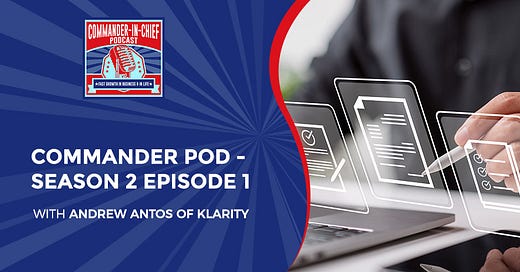





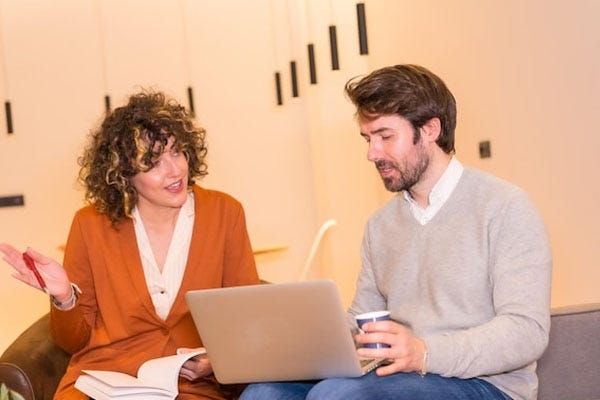



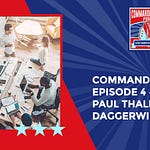

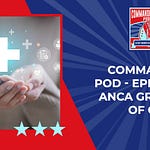
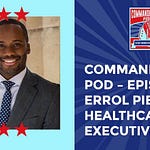


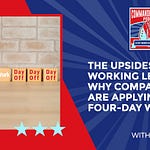
Share this post